Achieving a well-rounded diet with the right blend of nutrients is pivotal for optimal health and vitality. Protein and fiber stand out as essential components vital for overall well-being. Whole foods abundant in fiber and protein confer numerous health advantages, from promoting digestion and enhancing immune function to nurturing gut health and facilitating muscle development.
Navigating through the plethora of information available online can be daunting, making it challenging to discern which high-protein, high-fiber foods are truly beneficial for your health and wellness. To cut through the noise, we consulted registered dietitians who unveiled the top high-protein, high-fiber foods.
Protein is often hailed as the fundamental building block of life, and rightfully so. This macronutrient plays a vital role in tissue repair and regeneration, muscle development, and fortifying the immune system. Meanwhile, fiber is indispensable for promoting digestive health, stabilizing blood sugar levels, and mitigating the risk of chronic ailments. Both protein and fiber excel at enhancing satiety, prolonging feelings of fullness, and mitigating cravings and excessive eating.
Whether your aim is to enhance gut health, manage weight, or sustain energy levels throughout the day, incorporating these high-protein, high-fiber foods into your diet can pave the way toward achieving your health and fitness objectives.
1) Black Beans
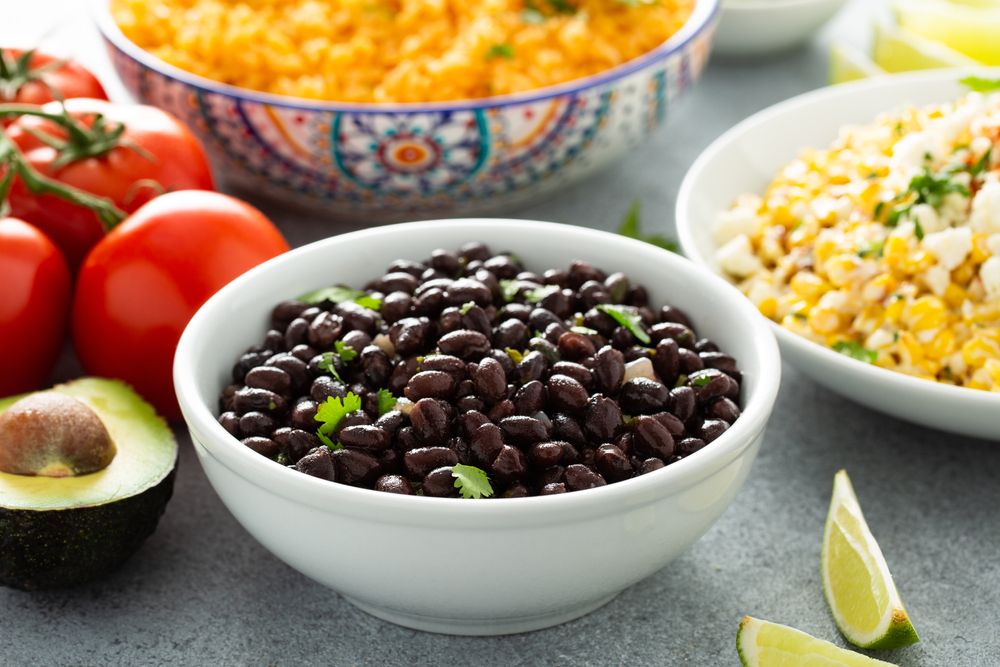
SERVING SIZE: 1/2 cup
CALORIES: 70
PROTEIN: 5 grams
FIBER: 7 grams
Black beans stand out as a versatile legume suitable for crafting burger patties or enhancing dishes such as burritos, stir-fries, soups, and salads. Beyond their culinary appeal, black beans boast an impressive antioxidant content, offering potential benefits in reducing the risk of chronic diseases such as cancer and heart disease.
According to Gianna Masi, CPT, RDN, a certified personal trainer and registered dietitian with Barbend, "Black beans pack a powerful punch of protein and fiber, making them a boon for heart health and digestion. Their low glycemic index not only enhances versatility but also aids in stabilizing blood sugar levels."
2) Lentils
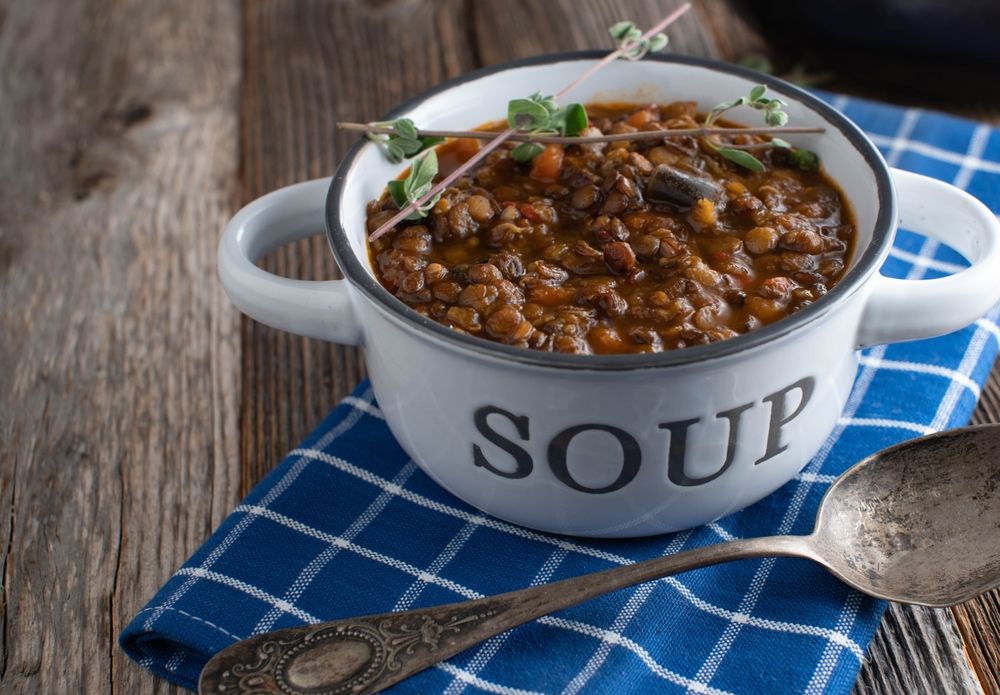
SERVING SIZE: 1/2 cup
CALORIES: 115
PROTEIN: 9 grams
FIBER: 8 grams
Lentils emerge as a rich source of soluble fiber, which nurtures beneficial gut bacteria, promoting improved digestion, reduced bloating, and enhanced gut health. According to Destini Moody, RDN, CSSD, LD, a registered dietitian and sports dietitian with Garage Gym Reviews, "Lentils boast over 25 percent protein and are brimming with essential nutrients such as B vitamins, notably folate, along with copper, manganese, and iron." Moody continues, "A single cup of cooked lentils furnishes nearly half of your daily fiber requirements. Their versatility shines as they can be incorporated into vegan, Greek-style salads, tossed into green salads, or incorporated into various soups."
3) Barley
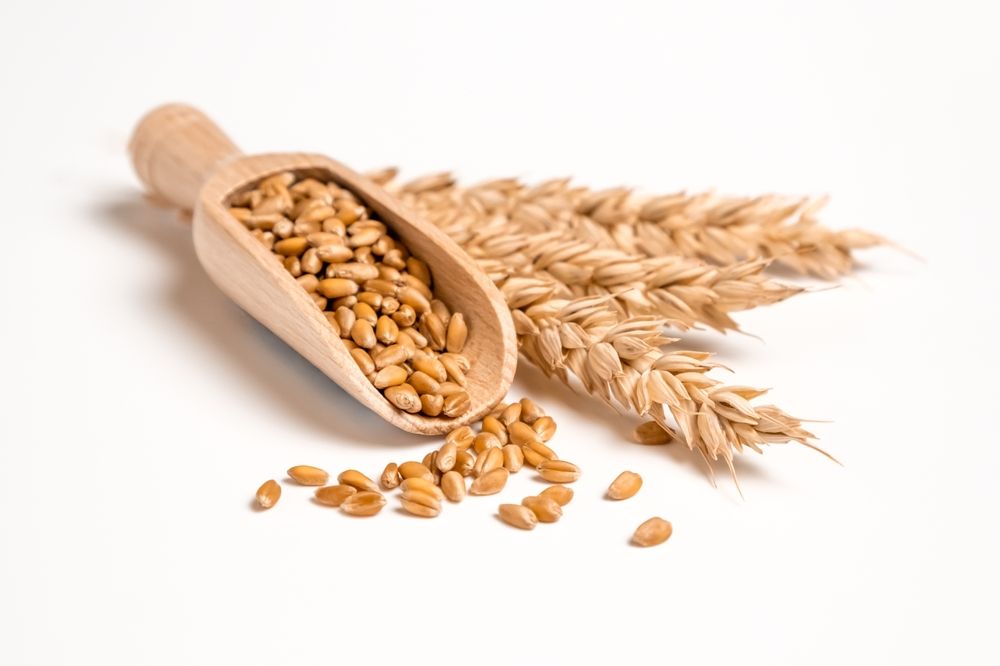
SERVING SIZE: 1/4 cup
CALORIES: 5
PROTEIN: 5 grams
FIBER: 7 grams
"Barley is a wholesome whole grain renowned for its blend of soluble and insoluble fiber, known to aid in cholesterol reduction and support digestive wellness. With its chewy texture and nutty essence, it serves as a delightful inclusion in soups, stews, and salads," elucidates Masi. "Moreover, barley offers a healthful alternative to rice in recipes like risotto or pilaf, elevating both taste and nutritional value."
4) Edamame
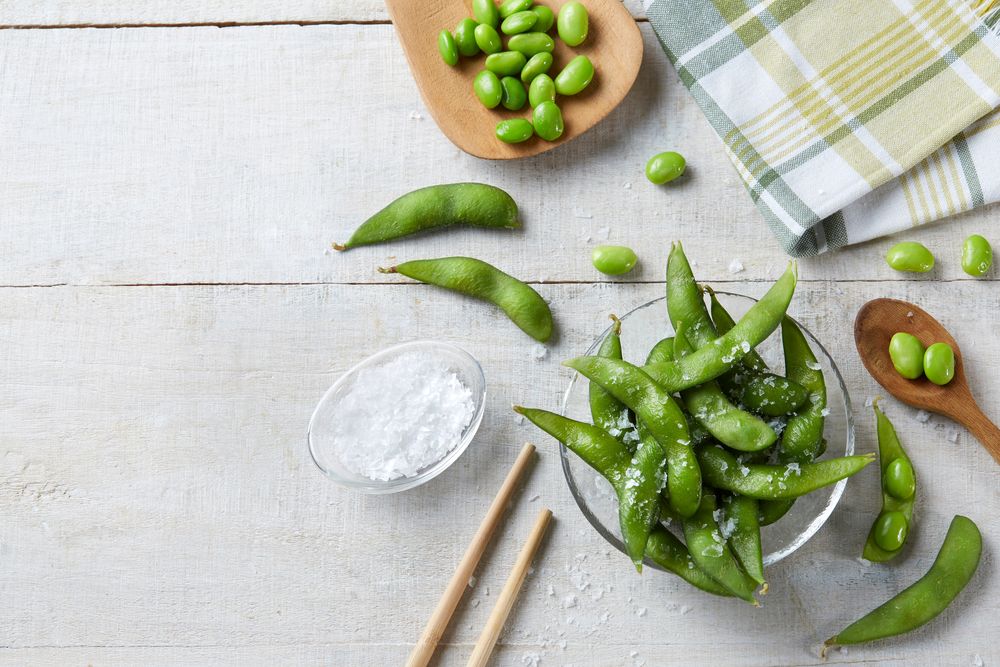
SERVING SIZE: 100 grams
CALORIES: 121
PROTEIN: 12 grams
FIBER: 5 grams
Edamame, the youthful soybeans encased in pods, boast an impressive nutritional profile. Research suggests they serve as an abundant source of isoflavones, antioxidants that may aid in reducing the risk of certain cancers. "Edamame offers not only a delightful snack rich in protein and fiber but also a plethora of vitamins and minerals, including vitamin K and folate," highlights Moody. "Enjoy edamame boiled or steamed with a touch of salt, incorporate them into salads, or add them to stir-fries for a flavorful and nutritious boost."
5) Oats
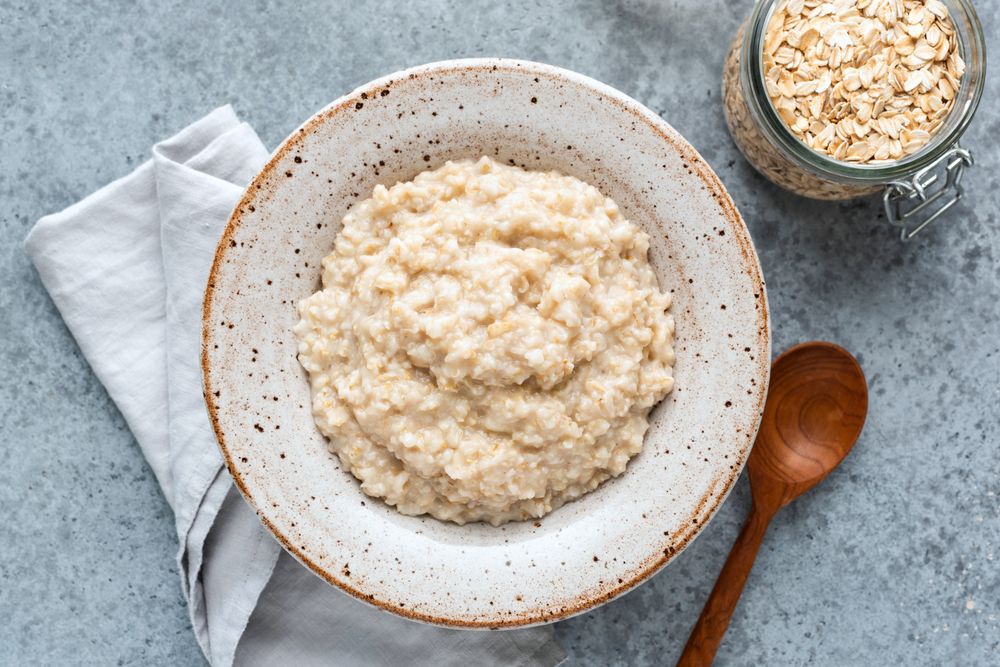
SERVING SIZE: 1 cup (raw)
CALORIES: 307
PROTEIN: 11 grams
FIBER: 8 grams
Oats stand out for their beta-glucans, a soluble fiber renowned for its potential to lower cholesterol levels. "Oats offer a unique combination of soluble and insoluble fiber, each playing a vital role. This includes aiding in blood sugar control, promoting healthy digestion, and regulating appetite," notes Moody. "Raw, rolled oats can be utilized to create snacks like protein bites or incorporated into smoothies to enhance texture, provide fiber, and bolster calorie intake, particularly beneficial for muscle gain endeavors."
6) Almonds
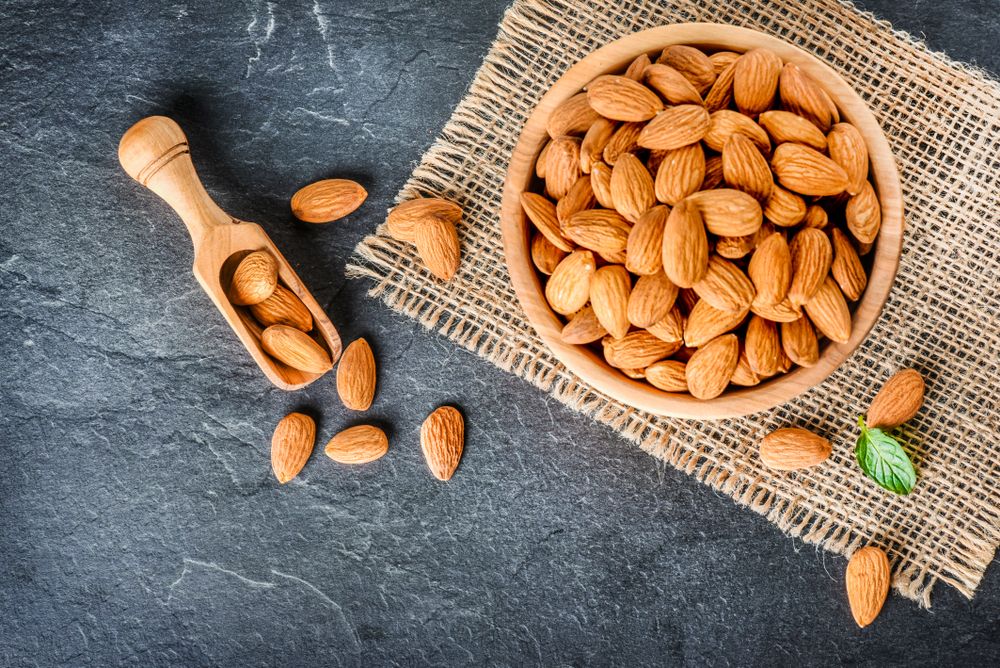
SERVING SIZE: 23 whole almonds (28 grams)
CALORIES: 164
PROTEIN: 6 grams
FIBER: 4 grams
"Almonds make for an excellent snack, whether on-the-go, at your workstation, or during a lengthy trek, offering a convenient source of both fiber and protein," remarks Moody. "With just one ounce, you fulfill half of your daily vitamin E requirements, a vital antioxidant. Almonds can be enjoyed as a standalone snack or as a delightful addition to smoothie bowls and oatmeal." Research indicates that vitamin E may enhance skin health by supporting the maintenance of healthy skin cells and safeguarding against skin damage and aging.
7) Flaxseed
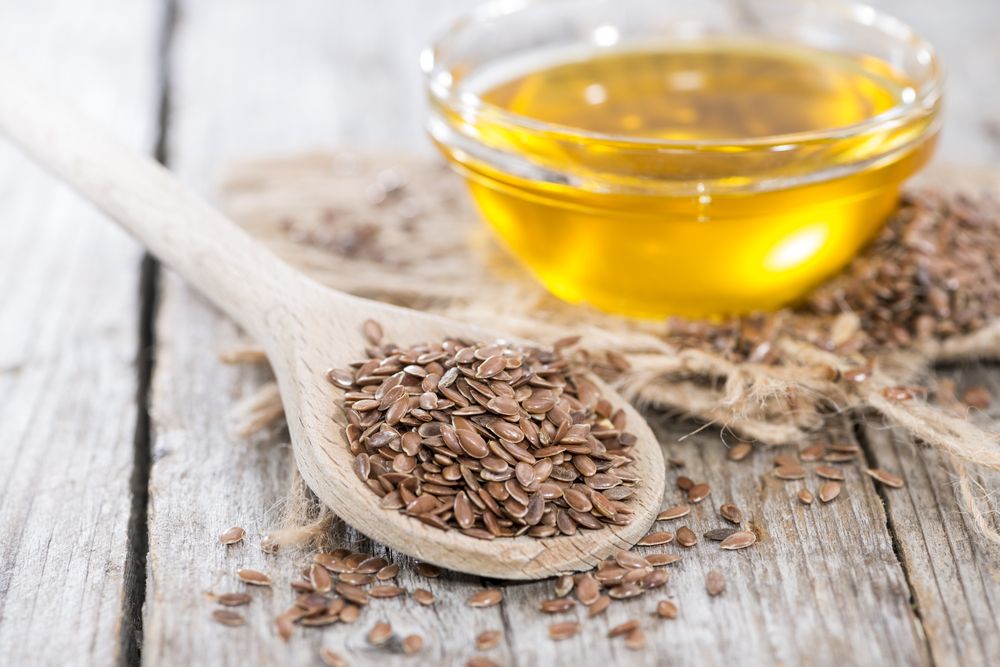
SERVING SIZE: 1 tablespoon, whole (10 grams)
CALORIES: 55
PROTEIN: 2 grams
FIBER: 3 grams
Flaxseeds emerge as a notable source of protein, fiber, and omega-3 fatty acids. The omega-3 found in flaxseeds, known as alpha-linolenic acid (ALA), holds potential in reducing the risk of heart disease. "These diminutive seeds seamlessly integrate into your daily meals. Ground flaxseeds can be effortlessly added to smoothies, yogurts, and baked goods such as muffins and bread. Alternatively, they serve as a delightful crunchy embellishment for salads and cereals," advises Masi.
8) Quinoa
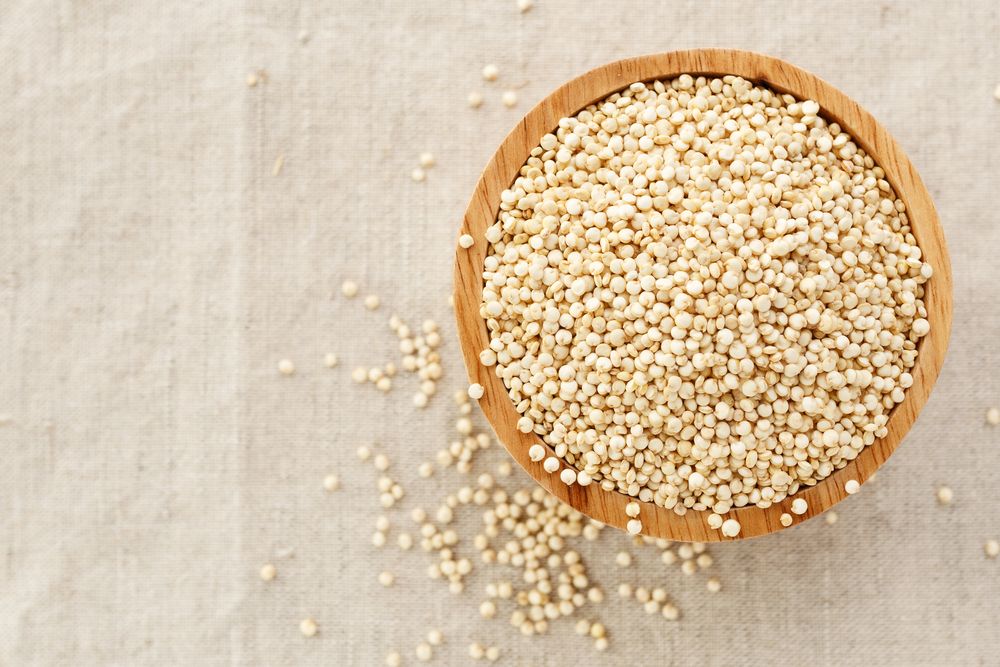
SERVING SIZE: 1 cup (cooked)
CALORIES: 222
PROTEIN: 8 grams
FIBER: 5 grams
Quinoa stands out as a complete plant-based protein, containing all nine essential amino acids necessary for optimal health. It is rich in nutrients such as manganese, magnesium, and phosphorus. Recently, quinoa has become popular as an excellent vegan source of plant protein. Though classified as a whole grain, quinoa is technically a seed, making it gluten-free—a beneficial trait for individuals with sensitive stomachs and allergies, according to Moody.
9) Pistachios
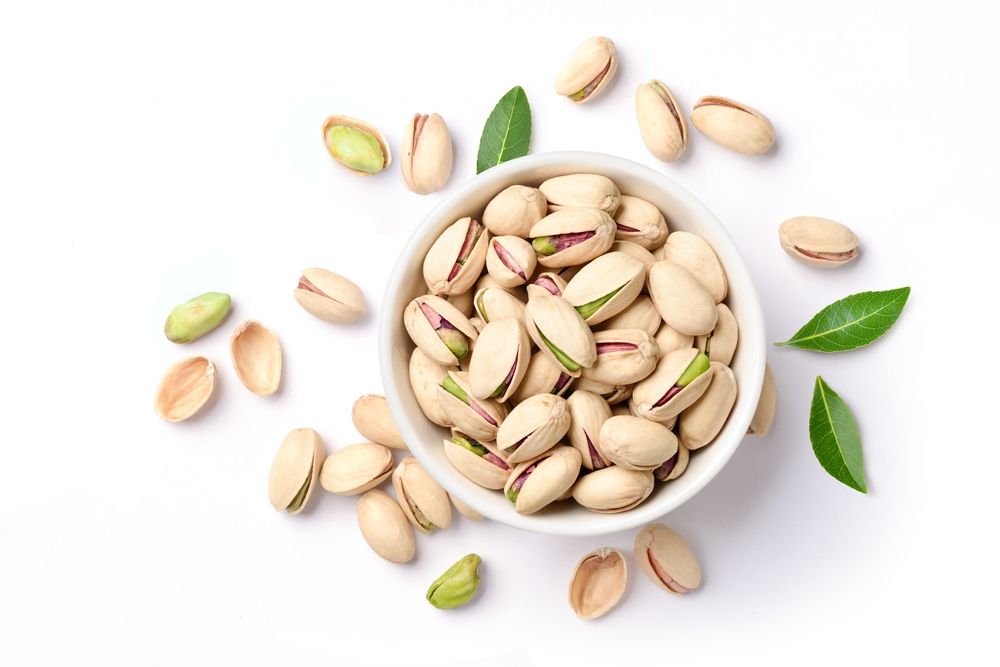
SERVING SIZE: 49 kernels (28 grams)
CALORIES: 159
PROTEIN: 6 grams
FIBER: 3 grams
Pistachios are not only high in protein and fiber but also beneficial for eye health due to their high levels of lutein and zeaxanthin, antioxidants that support vision and reduce the risk of macular degeneration.
"Pistachios are a fantastic on-the-go snack and can enhance the flavor and nutritional profile of various dishes. Try them chopped in salads, crushed as a crust for fish or chicken, or mixed into baked goods for a nutty crunch," says Masi.
10) Chia Seeds
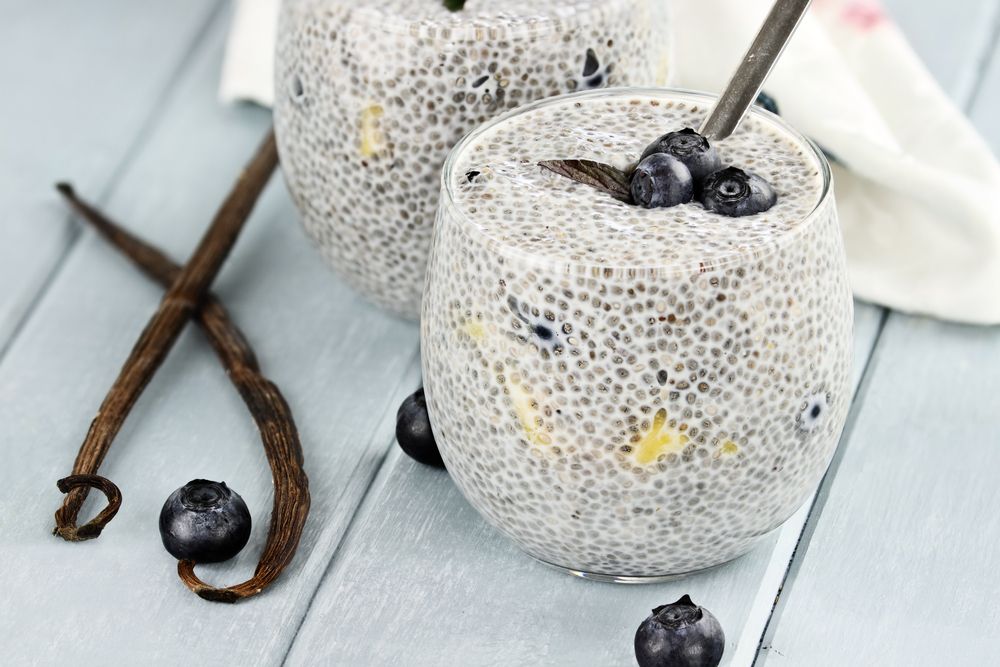
SERVING SIZE: 1 ounce (28 grams)
CALORIES: 138
PROTEIN: 5 grams
FIBER: 10 grams
Moody highlights the nutritional benefits of chia seeds, emphasizing their richness in omega-3s, vital for heart and brain health. Chia seeds are commonly enjoyed in chia seed pudding, a versatile breakfast option that can be enhanced with nutrient-packed toppings like fruit or almond butter. Additionally, their high antioxidant content has been linked to a reduced risk of cancer by aiding in inflammation reduction.
11) Tempeh
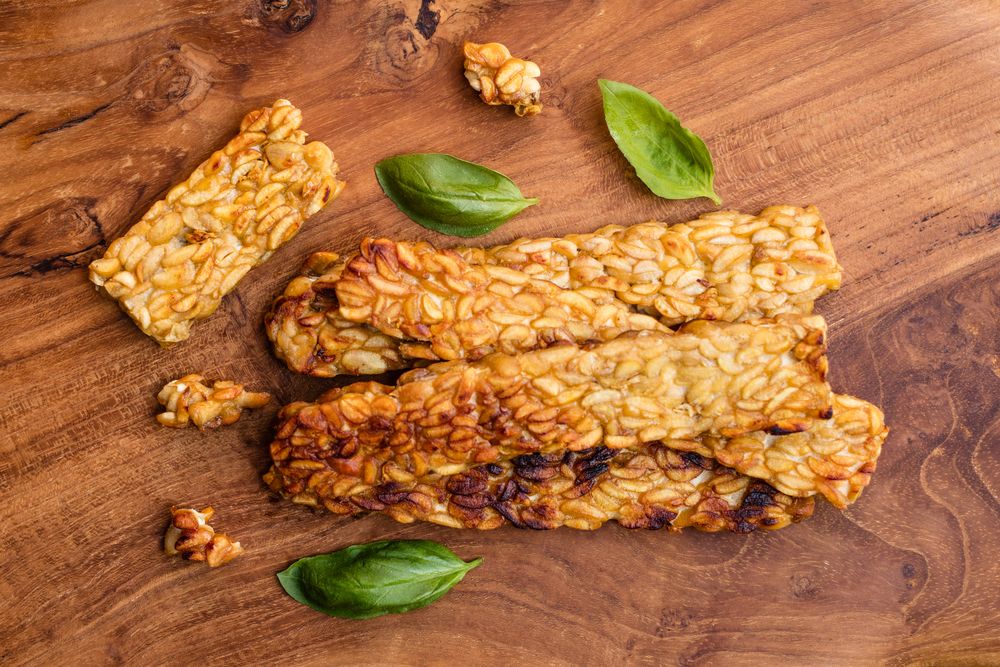
SERVING SIZE: 3 ounce (85 grams)
CALORIES: 190
PROTEIN: 20 grams
FIBER: 4 grams
Masi underscores the nutritional richness of tempeh, a fermented soybean product known for its high protein, fiber, and probiotic content, beneficial for gut health. With its firm texture and nutty flavor profile, tempeh serves as an excellent meat alternative for vegetarians and vegans. It's adaptable to various cooking methods like grilling, sautéing, and inclusion in sandwiches or salads, offering versatility and nutritional value to meals.
12) Chickpeas
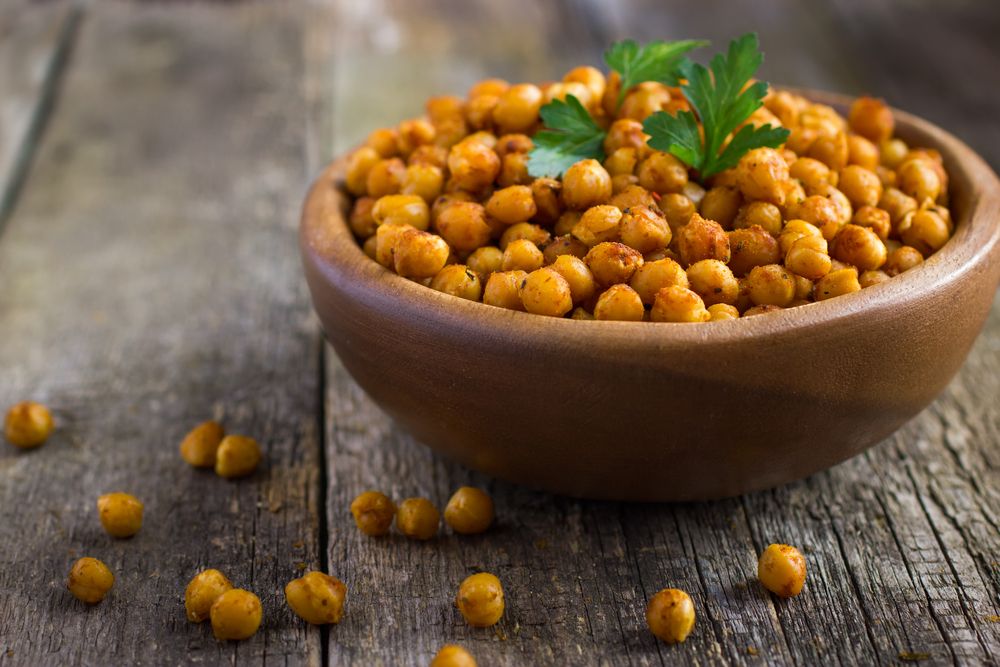
SERVING SIZE: 1/2 cup cooked
CALORIES: 135
PROTEIN: 8 grams
FIBER: 7 grams
Chickpeas, another versatile legume, are renowned for their high protein and fiber content. Recent research from 2016 also highlights their role as a good source of soluble fiber, known for its ability to help lower cholesterol levels and promote heart health.
Moody suggests various ways to incorporate chickpeas into your diet. They can be added to soups and salads, used in curry or hummus recipes, or roasted for a delightful snack. Roasting options include sweet variations with cinnamon and sugar coating or savory alternatives seasoned with ranch or curry powder. This versatility ensures a satisfying snack option suitable for any time of day.

